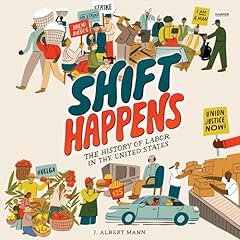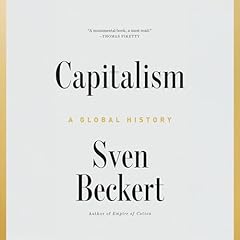
A History of America in Ten Strikes
Failed to add items
Add to Cart failed.
Add to Wish List failed.
Remove from wishlist failed.
Adding to library failed
Follow podcast failed
Unfollow podcast failed
Get 3 months for $0.99/mo
 Prime members: New to Audible? Get 2 free audiobooks during trial.
Prime members: New to Audible? Get 2 free audiobooks during trial.
Buy for $20.56
-
Narrated by:
-
Brian Troxell
-
By:
-
Erik Loomis
A thrilling and timely account of ten moments in history when labor challenged the very nature of power in America, by the author called “a brilliant historian” by The Progressive magazine
Powerful and accessible, A History of America in Ten Strikes challenges all of our contemporary assumptions around labor, unions, and American workers. In this brilliant book, labor historian Erik Loomis recounts ten critical workers’ strikes in American labor history that everyone needs to know about (and then provides an annotated list of the 150 most important moments in American labor history in the appendix). From the Lowell Mill Girls strike in the 1830s to Justice for Janitors in 1990, these labor uprisings do not just reflect the times in which they occurred, but speak directly to the present moment.
For example, we often think that Lincoln ended slavery by proclaiming the slaves emancipated, but Loomis shows that they freed themselves during the Civil War by simply withdrawing their labor. He shows how the hopes and aspirations of a generation were made into demands at a GM plant in Lordstown in 1972. And he takes us to the forests of the Pacific Northwest in the early nineteenth century where the radical organizers known as the Wobblies made their biggest inroads against the power of bosses. But there were also moments when the movement was crushed by corporations and the government; Loomis helps us understand the present perilous condition of American workers and draws lessons from both the victories and defeats of the past.
In crystalline narratives, labor historian Erik Loomis lifts the curtain on workers’ struggles, giving us a fresh perspective on American history from the boots up.
Strikes include:
Lowell Mill Girls Strike (Massachusetts, 1830-40)
Slaves on Strike (The Confederacy, 1861-65)
The Eight-Hour Day Strikes (Chicago, 1886)
The Anthracite Strike (Pennsylvania, 1902)
The Bread and Roses Strike (Massachusetts, 1912)
The Flint Sit-Down Strike (Michigan, 1937)
The Oakland General Strike (California, 1946)
Lordstown (Ohio, 1972)
Air Traffic Controllers (1981)
Justice for Janitors (Los Angeles, 1990)
©2018 Erik Loomis (P)2019 Brilliance Publishing, Inc. Published by arrangement with The New Press (www.thenewpress.com).Listeners also enjoyed...




















People who viewed this also viewed...














Indispensible for any worker.
Something went wrong. Please try again in a few minutes.
Great History, Great Listen
Something went wrong. Please try again in a few minutes.
I heard earlier today that wage theft cost American workers $50 Billion a year. We need to strengthen employee protections.
One hundred years ago too many people were working 10 hours a day, six days a week. Things like the weekend, overtime pay, and most importantly workplace safety did not come about from bosses benevolence; people worked, fought and died for them.
If you didn’t learn the history of the labor movement in school, or if you’re fuzzy on the details, this book is an eye opener.
Should be required reading for all wage earners and voters
Something went wrong. Please try again in a few minutes.
a great intro to Unionism in the US
Something went wrong. Please try again in a few minutes.
brief overview of the labor movement in America
Something went wrong. Please try again in a few minutes.


